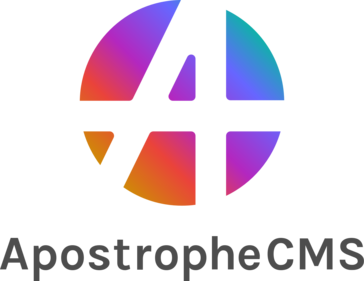
KeystoneJS
KeystoneJS empowers developers to streamline their backend processes by generating a robust GraphQL API and an intuitive Management UI based on defined schemas. With no unnecessary boilerplate, it offers essential features like access control, database migrations, and automated CRUD operations, enabling rapid deployment and flexible scaling for diverse applications.
Top KeystoneJS Alternatives
Svbtle
Svbtle is an all-new publishing platform designed to help your ideas and develop them into meaningful articles, while maintaining the simplicity in the usage.
SeoToaster CMS
Designed for businesses aiming to boost online visibility and sales, this platform seamlessly integrates content management, e-commerce, and CRM functionalities.
WoltLab
Empowering thousands of global communities, this scalable software facilitates meaningful discussions among friends, colleagues, and customers.
Wolf CMS
Wolf CMS delivers a user-friendly experience for content management, featuring a sleek interface and customizable templating on a per-page basis.
Mobile Joomla
Transforming Joomla! sites into mobile-friendly experiences, Mobile Joomla! ensures optimal performance on all devices, from iPhones to Androids.
DedeCMS
DedeCMS is an advanced web content management software that supports Nginx, IIS, and Apache with PHP 5.6+ and MySQL 5.7+.
ContentBox
With a robust API, it ensures seamless content consumption across devices and applications...
WebsiteBaker
With intuitive template creation using (X)HTML, CSS, and jQuery, and the innovative droplets feature for...
Apostrophe CMS
Its flexible, open-source architecture allows for extensive customization, supporting advanced permissions and document versions...
Posthaven
The platform supports custom domains, full HTML/CSS theming, and ensures content longevity with robust privacy...
Percussion CM1
This powerful tool enhances workflow efficiency, enabling users to effortlessly integrate and manage content while...
4images
Its customizable templates enhance design flexibility, while features like multilingual support, automatic thumbnail generation, and...
Cockpit CMS
With its API-first design, Cockpit enables seamless content distribution across multiple channels...
Orchard
It features a gallery for themes and extensions, tools for data management, and guides for...
Brightspot
Renowned for its customizability and user-friendly interface, it empowers businesses to swiftly create and disseminate...
KeystoneJS Review and Overview
For any enterprise to uphold its online reputation, having a highly scalable web application is a must. To achieve that, Nodejs has become a favored choice for web developers. Over 1.5 lakh websites today run on this web framework, and the number is ever-increasing. The demand for a robust Content Management System (CMS) architecture comes hand in hand with NodeJs applications’ surging popularity. KeystoneJS is an open-source platform that has been serving the market consistently for years now with its sophisticated CMS frameworks. It is a vastly scalable architecture that comes with an assortment of customization options for the developers.
A developer’s best friend for building NodeJs applications
KeystoneJS eyes the future and helps you put together a flexible architecture that stands the test of time. You can see Keystone as a function of your schema that creates top-notch GraphQL API for querying and a simplified Admin UI for your data management needs. These tools form the building blocks of any type of application you want to build. So, Keystone not only provides a sturdy CMS structure but also allows developers to diversify their work with RESTful APIs, various online forums, and e-commerce platforms. Additionally, you can create component-based Content Models with the extension plugins.
Seamless integration with any front-end framework of your choice
One of the best things about KeystoneJS is that it comfortably integrates with multiple frameworks, so you get to exercise your wish. An express static server lets you serve HTML, CSS, images, or static resources and deploy simple front-ends. You can work on the progressive framework of Nuxt.js for building static landing pages of websites or more complex web applications to serve enterprises. If you love the ease of zero setup and ready for production feature of Next.js KeystoneJS has got you covered too. With GraphQL API and Admin UI being at its core, KeystoneJS is truly headless by default.
Get started in no time with the ideal back-end
KeystoneJS is undoubtedly best for a wide variety of applications and websites such as React, Vue, Angular, and mobile apps, Gatsby, Next.js, or static sites, etc. Plus, you get the freedom of data hosting and admin application choices, along with the ability to deploy your applications anywhere once you connect your PostgreSQL or MongoDB database with KeystoneJS. Now that you know why KeystoneJS is a market-leading solution, quickly scan through the setup guide, and fire it up in no time. Get your hands on it and start by building a simple todo app within four minutes of a fresh installation.
Top KeystoneJS Features
- GraphQL API
- Beautiful Management UI
- No boilerplate code
- Custom schema definitions
- Advanced access control
- Flexible editing environment
- Rapid backend specification
- Automated CRUD operations
- Event hooks support
- TypeScript integration
- Relational data management
- Powerful filtering options
- Session management capabilities
- Git-based development workflow
- Open source platform
- Deployment on managed services
- Multi-framework content access
- Collaborative content culture
- Community support via Slack
- Scalable backend architecture












